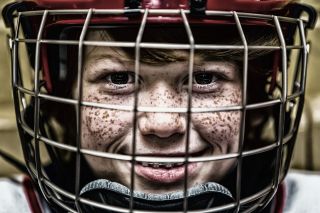Sport and Competition
What Being an Elite Athlete Taught Me About Life
Sports can be an amazing metaphor for the challenges of life.
Posted April 22, 2024 Reviewed by Michelle Quirk
Key points
- Playing a sport, at any level, can promote many benefits for children.
- Parents can become part of the solution (or the problem) by how they support their children.
- Lessons learned from sport can last a lifetime and prepare them for what lies ahead.

During my psychoanalytic training, one instructor offhandedly stated that psychoanalysts often were not the athletes in high school or college; we were the studious ones. I didn’t dare argue at the time, but that was not my experience.
Growing up in Madison, Wisconsin, I was a standout hockey player. The sport had an enormous impact on my life, and the lessons far outreached the athletic goals achieved. This blog post will explore the benefits and drawbacks of being an elite athlete and how to leverage the beneficial aspects of it as a parent, coach, or educator.
As a youth athlete, I witnessed all the joys of being a part of a team. I felt buoyed when I contributed to the team, and I felt good in cheering on my teammates. It also felt just as important when I consoled a player who made a mistake, and I benefitted from such kind words myself when I fell short.
Unfortunately, none of us is exempt from the worst of youth sports. I experienced a talented player or two getting cut to make way for the son of the coach’s friend. I also remember riding home with a teammate when his father reached over and punched him, hard, in the arm for not playing better. In reminiscing recently with my father, we recalled at least three instances where parents fought in the stands, sometimes even among parents of the same team.
In the end, my hockey career was both amazing and ordinary. On the one hand, I was one of 20 to represent Team Wisconsin in a national showcase and was named the most valuable player in Madison my senior year of high school. This was a big deal for me and contributed to my sense of accomplishment. It was also humbling when I considered (and sometimes played against) the respective best players from Minneapolis or Toronto or Stockholm. Madison began to look pretty small at that point. There’s always a bigger fish.
Still, I was able to play Division III at Amherst College and was fortunate to stay healthy enough to play in every game all four years. Some of the people I played with or against growing up have their names on the Stanley Cup. That would have been pretty special, but I am grateful for what hockey was able to provide in my life—mainly the lessons, not the hardware. Following are a few suggestions from my time as an athlete.
- Find the right role models. As a hockey player, I was fast and had good hands. I was not big. Rather, I was tall but not heavy, so I spent my time trying not to get hit versus mixing it up in the corners. Fortunately, I had the perfect role model at the time in Wayne Gretzky. He was not the biggest guy on the ice. In fact, his size was notably average, but his play was anything but. In him, I saw someone who could excel through hard work (and, of course, enormous talent) to outplay the bigger guys. It was inspiring and motivating. My parents promoted my interest by bringing me to the University of Wisconsin hockey games. There, I watched Mark Johnston and Bobby Suter, two future Olympians who played for the Miracle on Ice team in Lake Placid. I interacted with both as a kid in summer hockey camps, and they were amazing role models.
- Remember: Parents are the support, not the stars. Parents play an important role in promoting youth sports. More than just driving their kids to practice at 5 a.m. (Thanks, Mom!), they are often the first coaches and role models for young athletes. If you are a parent of an athlete, this is your chance to do it right! However you were parented or coached, you will want to be a cheerleader and best supporting actor here, not the star. Some parents play out their own sports fantasies or failures with their children. This rarely ends well. Far better to connect with your son or daughter around love of the game, hard work, and personal growth as opposed to becoming their biggest critic.
- Speaking of effort... It has been fairly well documented that praising the effort is more effective than general praise. In her book Mindset, researcher Dr. Carol Dweck explains how praising a child’s effort leads to improvement in a task, whereas praising intelligence actually has a deleterious impact as it diminishes motivation and performance. Recent research added to this concept, specific to an athletic task. Sahli and colleagues found that verbal encouragement during high-intensity functional exercise testing increased performance more than general compliments. So, all that cheering at your kids’ games does make a difference!
Now that I am a psychologist, I work with individuals from all walks of life. I have also worked with professional athletes in three leagues during my career: Major League Baseball, Major League Soccer, and the National Hockey League. I am not a sports psychologist. Rather, I have been referred athletes who are dealing with life’s problems, like the rest of us. And that is the key, whether one is a professional athlete, woodworker, or lawyer. We all face challenges. Sometimes the problems differ, but human beings have human problems: relationship challenges, identity concerns, grief, loss, and trauma. I have found that sports can be a metaphor for many of these life challenges. We all win some, and we all lose some in our lives, no matter how good we might be at something. Knowing how to cope with the stressors and disappointments is one of the best lessons that athletics can teach a young person today and help to prepare them for what lies ahead in their lives.
References
Dweck, C. S. (2006). Mindset: The New Psychology of Success. Random House.
Sahli H, Haddad M, Jebabli N, Sahli F, Ouergui I, Ouerghi N, Bragazzi NL, Zghibi M. The Effects of Verbal Encouragement and Compliments on Physical Performance and Psychophysiological Responses During the Repeated Change of Direction Sprint Test. Front Psychol. 2022 Feb 18;12:698673. doi: 10.3389/fpsyg.2021.698673. PMID: 35250684; PMCID: PMC8896045.


